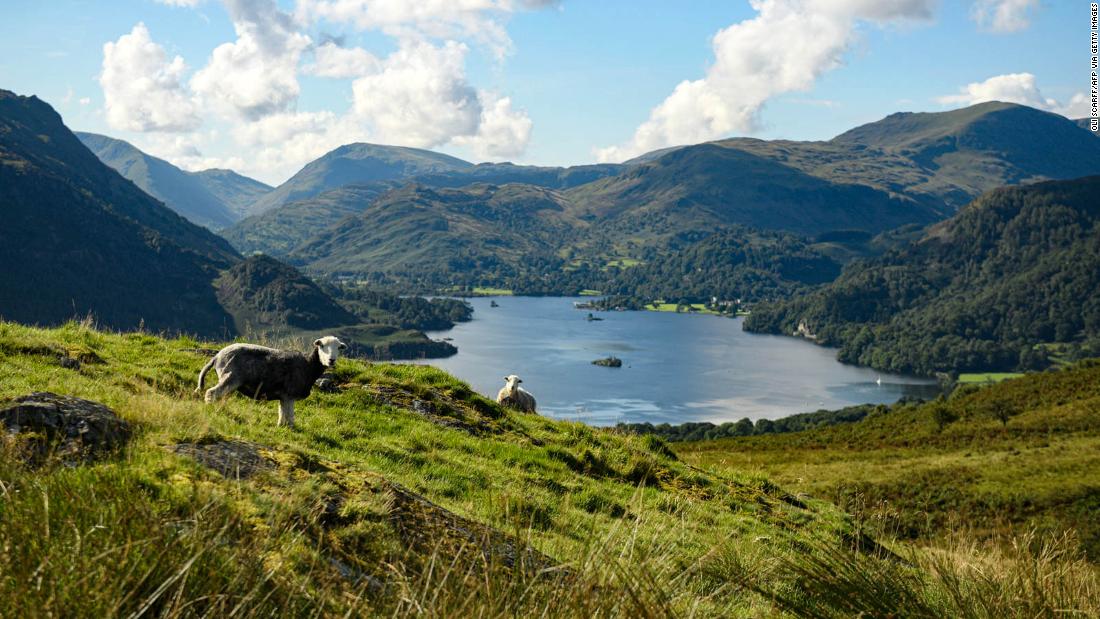Editor’s Note — Coronavirus cases are in flux across the globe. Health officials caution that staying home is the best way to stem transmission until you’re fully vaccinated. Below is information on what to know if you still plan to travel, last updated on October 7.
The basics
The United Kingdom has seen one of the highest number of deaths from Covid-19 in the world, resulting in multiple lockdowns.
In England, Scotland and Wales, most legal coronavirus restrictions have now been lifted, but there are still restrictions in place across the UK regarding international travel. See more below.
In Northern Ireland, other domestic Covid-19 restrictions also remain.
Across the UK, there are fears about the impact of the Delta Covid variant.
What’s on offer
In London, the UK has one of the world’s greatest cities. But beyond the architectural marvels and nightlife of the capital, there is much to explore — the rugged peaks of the Scottish Highlands, distant Welsh lakes and the wide sweep of Cornish beaches, for starters, plus historic towns and cities such as Bath, Oxford and Harrogate.
Who can go
Most fully vaccinated travelers from green list countries can enter England, Scotland, Wales and Northern Ireland without a pre-departure negative test or quarantining, but they must do a test on or before day two of their arrival.
Non-vaccinated travelers can also visit the UK, but are subject to extra testing and quarantine requirements. See below.
Unless you’re a resident of England, Scotland, Wales or Northern Ireland — or a British or Irish national — you’ll be refused entry arriving into the UK from a red list country.
UK residents and British and Irish nationals arriving home from red list destinations must quarantine on arrival in a quarantine hotel and follow testing requirements. See below.
If you’ve arrived from a red list country and your final destination is in Wales or Northern Ireland, you will need to book a quarantine hotel in England or Scotland.
(The Republic of Ireland has entirely separate entrance regulations, which are enforced when crossing the land border.)
What are the restrictions?
Red list countries
Red list arrivals are currently refused entry to the UK — unless you are a UK residents or a British or Irish national.
UK residents and British and Irish nationals arriving home from red list destinations must undergo a 10-day hotel quarantine at their own expense.
Before arriving in the UK, these travelers must purchase what the UK government calls a “quarantine package,” covering the stay in hotel quarantine and food and drink while there.
Green list countries
As mentioned above, most fully vaccinated travelers to the UK from green list countries no longer need a pre-departure negative test. This rule also applies to travelers under 18.
All travelers from green list countries to England, Wales, Scotland and Northern Ireland must book and pay for a day two PCR test.
Non-vaccinated travelers to the UK from green list countries must do a pre-departure negative test and book and pay for a day two and day eight PCR test. Non-vaccinated green travelers must also quarantine at home, or at the place they are staying, for 10 days.
Any destination not on the red list is considered green, but some green destinations don’t currently permit nonessential travel from the UK.
Future changes
Other developments:
What’s the Covid situation?
The UK suffered a devastating first wave in 2020, followed by a troubling winter 2020/2021 in the wake of the discovery of the Alpha (Kent) variant.
On June 1, 2020 zero Covid deaths were recorded across all four nations of the UK. Not long after, case rates were rising again amid increasing concerns about the impact of the Delta variant.
Cases fell in July, but in recent weeks appeared to be on the rise again.
There have been more than 8 million Covid cases and over 137,600 deaths in the UK as of October 7.
The UK was the world’s first country to begin a vaccination program, which has lessened the burden on the National Health Service (NHS). All adults in the UK have now been offered a first dose of a Covid-19 vaccine.
As of October 4, over 94.8 million vaccination doses have been administered in the UK and over 67% of the population has been fully vaccinated.
In March 2020, there was a UK-wide lockdown that lasted until the summer. Since then, England, Scotland, Wales and Northern Ireland developed their own region-specific measures.
Restrictions are now eased across the UK, but some remain in Northern Ireland — see more below.
What can visitors expect?
England has emerged from lockdown and most legal Covid-19 restrictions have now been lifted.
As of July 19, there are no longer limits on how many people can meet inside or outside at private households or in hospitality venues.
All English shops, museums, theme parks, bars, pubs, hotels, B&Bs, cinemas, theaters and nightclubs can reopen.
Social distancing and face masks are no longer required by law.
However some businesses are still implementing Covid-19 restrictions, so it’s worth checking the situation before you go.
Travel within the UK is allowed, as is travel abroad, in line with the system described above.
The government has also said the one-meter rule will remain at the border in order to manage the risk of variants.
While the legal requirements on face masks have been lifted, Prime Minister Boris Johnson said “we expect and recommend that people wear a face covering in crowded and enclosed spaces where you come into contact with those you don’t normally meet, such as on public transport.”
London Mayor Sadiq Khan asked Transport for London (who manage the city’s transport network, including the Tube) to continue to mandate travelers wear face masks after July 19, unless they’re medically exempt.
People in England who are identified as close contacts of someone who has tested positive for Covid-19 must self-isolate for 10 days — unless they’ve been fully vaccinated.
Adults who’ve had both jabs and children under 18 — as well as people who’ve taken part in an approved Covid-19 vaccine trial and those who can’t get vaccinated for medical reasons — who are identified as close contacts don’t have to self-isolate, as long as they test negative for Covid-19 via a PCR test.
Using the app is not compulsory but is recommended by the UK government.
There are no longer limits on numbers of people meeting indoors or outdoors, in homes, restaurants, bars or pubs.
All businesses — from hotels to museums to nightclubs — can reopen.
Travel within Wales and the rest of the UK is permitted, as is travel abroad under the traffic light system.
Face coverings are still required by law in certain indoor settings, but not in hospitality venues.
The Welsh government also advises people to meet outdoors if possible, as well as “limit the number of people you meet at any one occasion, the amount of time you spend with people and maintain physical distancing where you can.”
Fully vaccinated adults in Wales — as well as those under 18 and vaccine trial participants — don’t need to self isolate if they’re a close contact of someone who has tested positive for Covid.
On August 9, Scotland removed most remaining Covid restrictions.
There are now no limitations on the number of people gathering in homes, restaurants, bars or pubs.
Museums, pubs, restaurants shops, tourist attractions and theaters can all reopen. Nightclubs are now able to open again.
The legal requirement on social distancing has also been removed.
Travel within Scotland and the rest of the UK is permitted, as is travel abroad as outlined above.
Face coverings are still mandatory in indoor public places and public transport. There is also a maximum of 2,000 people at any indoor event, and 5,000 people outdoors.
Adults who’ve been been double-vaccinated for two weeks or more — and children between five and 17 — who are identified as close contacts of someone who has tested positive for Covid-19 do not have to to self-isolate, so long as they test negative for Covid-19 via a PCR test.
- Northern Ireland
In Northern Ireland, all non-essential shops have reopened and restaurants are open for indoor and outdoor dining. Restrictions have been removed regarding the number of households who can sit together in hospitality venues.
Overnight stays in self-contained holiday accommodation with your household — or with up to 15 people from no more than four households — are also permitted. Children under 12 aren’t counted in this total. Northern Ireland outdoor visitor attractions have also reopened.
Hotels and B&Bs have also reopened, as have museums and other indoor leisure and visitor attractions. Live music and theater is allowed but nightclubs remain closed.
Travel within Northern Ireland and the rest of the UK is allowed, as is travel abroad as outlined above.
Face coverings are required on public transport and some other indoor public settings.
Useful links
Our recent coverage
CNN’s Julia Buckley and Francesca Street contributed to this report



















